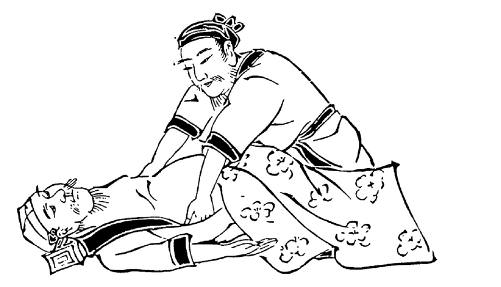Shiatsu is a physical therapy in which pressure points are pressed and gentle stretches are applied to the body in order to relieve pain and tension.
It is a full body, fully clothed therapy performed on the floor where the therapist will use their thumbs, fingers, knees and palms to stretch and move the body. It is a holistic therapy and moves and stimulates the body in specific areas relating to traditional Chinese medicine. Shiatsu is a therapy that works to balance the body, the spirit and the mind through physical stimulation. Posture and lifestyle are taken into account in forming a diagnosis, as well as a physical assessment of the musculoskeletal system.
The style of Shiatsu which Emma practices in Cyprus has a direct link to it's origins in Japan and China. Her 3 year Diploma in Shiatsu-Do which she completed in London's British School of Shiatsu included thorough anatomy and physiology training as well as training in Traditional Chinese Medicine theory and body work techniques. She also specialised in Shiatsu for pregnancy, Shiatsu for sports injuries and using Cranial Sacral therapy in Shiatsu as well as techniques for working with fascia. Her training in psychology and psychotherapy informs her treatments and her further training with one of Shiatsu's leading teachers, Saul Goodman in Shiatsu - ShinTai has given her a huge toolkit of techniques that she uses to ease pain and discomfort in the body, mind and spirit.
She practices from The Centre, her own space located in the centre of Nicosia.

History of Shiatsu
Shiatsu has its' origins in China thousands of years ago; physical touch would often precede or accompany acupuncture and herbal medicine in the Doctor's treatments. It evolved in Japan where particular attention was paid to the "hara" the abdomen. In the last 100 years it was brought to the West and modern theories of psychology, as well as anatomy and physiology have developed the therapy into what it is today
...click here for more information about Shiatsu's history
Conditions Particularly Suited to Shiatsu
- Back, Neck and shoulder pain
- Stress and anxiety
- Chronic pain and fatigue and low energy levels
- Muscular tension
- Headaches and Migraines
- IBS and Digestion
- Gynecological complaints
- Joint pain
- Sports injuries
- Pregnancy and Postnatal
How Does Shiatsu Work
Touch is a fundamental part of the healing experience. Instinctively a mother will hold her baby to sooth her, we rub, stroke and hold an area of pain, or a loved one so as to relieve physical and mental suffering. There is an innate connection between the body and the mind. How we feel physically in our body affects how we feel in our emotions and our minds. The belief in a separation between the body and the mind is increasingly becoming outdated as more and more scientific research is published that supports centuries of traditional forms of healing. Shiatsu works from the understanding that their is little division between the head and the body, and in addition incorporates how our life experiences can be stored in the body also.
Meridians are channels of energy that travel through specific pathways in the body. Along these meridians there are specific points. These channels first develop in the womb and continue to evolve in early childhood. The entire human experience is understood through these pathways. When these meridians and points are stimulated they respond and create changes. The energetic changes work to release muscle tension, create hormonal changes as well as stimulating the emotional and spiritual. Through the physical touch and energetic connection to the meridians Shiatsu addresses every aspect of our being.
What to Expect From a Shiatsu Session
Try to avoid eating a heavy meal an hour before the session and come wearing loose, comfortable clothing. Some questions will be asked about your medical background and some to ascertain what you are looking to achieve from the sessions. Shiatsu is a fully clothed treatment and is traditionally given on a futon on the floor; you may be given some lifestyle recommendations and gentle exercises too.
How Often Would I Need to Come?
This really depends on you. Most people will start with a series of sessions to address a specific problem, and then decide to come monthly or as they need to. Regular sessions, monthly for example work as a preventative to pain and discomfort by boosting the immune system. Imbalances are addresses before they manifest physically, emotionally or mentally.

